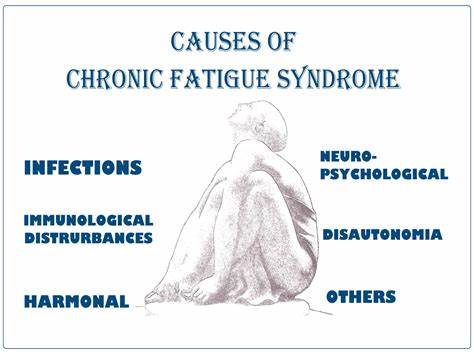
This is a complicated, long-term term serious illness characterized by extreme tiredness of muscles, and unrefreshing sleep but still can’t be explained by such medical conditions also known as myalgic encephalomyelitis or systemic exertion intolerance disease.
Anyone can get CFS but the Women are most commonly affected than men between the age group of the 40s and 50s. The symptoms are usually mild, moderate or maybe worse in some cases. The disease cannot be cured but the medications may help to relieve the symptoms.
What are the symptoms of CFS?

CFS is one kind of unstable disease as sometimes the person feels better and the other time condition is truly bad. Although symptoms may vary depending upon the individual and based on the severity.
Following are listed symptoms a person may experience
Lack of Concentration
Difficulty in doing daily activities for a few months
Feeling extreme fatigue after doing physical or mental activities known as post-exertional malaise which lasts for 24 hours or more.
Loss of Memory
Chronic insomnia means trouble falling asleep or feeling unrested
Frequent headaches
Multiple joint pains without any swelling
Tender and swollen lymph nodes in armpit and neck
you might feel weak, dizzy, light headache or blurred vision while standing or upright sitting position
Symptoms may disappear completely which is called the remission stage but it may come later on called a relapse stage. This cycle is difficult to manage but it is possible to treat.
What could be the causative factors behind the disease?

Age and Gender
The disease occurs at any stage of age but most often in people 40s or 50s’The girls are more likely to develop the disease than boys.
Stress
Hormonal imbalances
Patients with Abnormal blood levels of hormones produced by pituitary or adrenal glands may also be affected by the disease.
Viral infection
CFS can also occur after some type of viral infections such as Human herpesvirus 6, Ross River virus, rubella, Epstein Barr virus. Also, might be because of bacteria including Coxiella burnetiid and Mycoplasma pneumonia.
Genes
Some people inherit a risk for the disease from one of their parents due to defect in a particular gene responsible for it
Other responsible factors like allergies, weakened immune system or some environmental factors are also the causative factors for the same.
How CFS can be diagnosed?
CFS is a very challenging condition to screen as there is no specific test for it but a doctor can rollout the condition only after knowing the past illness history, current medication treatment or family’s medical history.
These are the following illness can show the symptoms of CFS.
Problems with your heart and lungs make you feel fatigues as stress test is done to assess the function of Heart and lungs.
Mental health problems such as depression, bipolar disorder, anxiety, schizophrenia also causes tiredness due to mental stress.
Medical health problems such as anemia, diabetes, hypothyroidism cause restlessness. Therefore, a blood test is done for screening out these health issues for CFS.
Sleeping disorders such as insomnia, obstructive sleep apnea or restless legs syndrome cause chronic fatigue.
The side effects of certain drugs such as antihistamine or alcohol also mimic the symptoms of CFS as well.
Treatment options

Cognitive Behavioural therapy
CBT is the treatment option to treat psychological and physical conditions and therefore you may be able to better cope the CFS symptoms.
Home remedies and lifestyle changes
Do some lifestyle changes that may help you to relieve your symptoms. Limiting the intake of caffeine to treat certain sleeping issues such as insomnia. Cut off the alcohol and nicotine intake as well. Try to avoid napping during the day to get better sleep at night. Sleeping at the regular bedtime and wake time and also make your room dark, cool and quiet for a sound sleep.
Graded Exercise
In this, the physical therapist helps by determining the intensity of the exercise over time which may help to reduce your hypersensitivity to exercise.
Antidepressants
These drugs are used to treat sleeping disorders and improve energy levels as depression causes problems with both of these. Also, antidepressants serve the purpose of treating CFS as depression is the symptom of it, therefore, antidepressants can help with treating CFS and depression as well. Antidepressant drugs such as fluoxetine, clomipramine, oxepine, etc are prescribed to treat the condition.
Anti-inflammatory drugs
Over the counter medications such as ibuprofen, paracetamol, acetaminophen, etc can help to manage the symptoms of Pain as headache, muscle pain is the most common effects of CFS.
Anticonvulsants drugs
These drugs used to treat the seizures but sometimes prescribed for pain and sleeping problems as well. Also given for fatigue and tiredness as drugs affect the brain in a way to reduce the fatigue. They are also useful for treating nerve pain.
Sleeping Pills
Sleeping pills are zolpidem, Ramelton is prescribed as sleeping disorders are the main symptom of CFS, therefore, pills are given to get the full amount of sleep each night. Sleeping won’t eliminate your tiredness but it will improve the symptoms.
Narcotics
This is the last resort in extreme cases of CFS to treat the severity of muscle and joint pain. But the most important thing to remember never take the medicine without consultation of a doctor because these are highly addictive.







